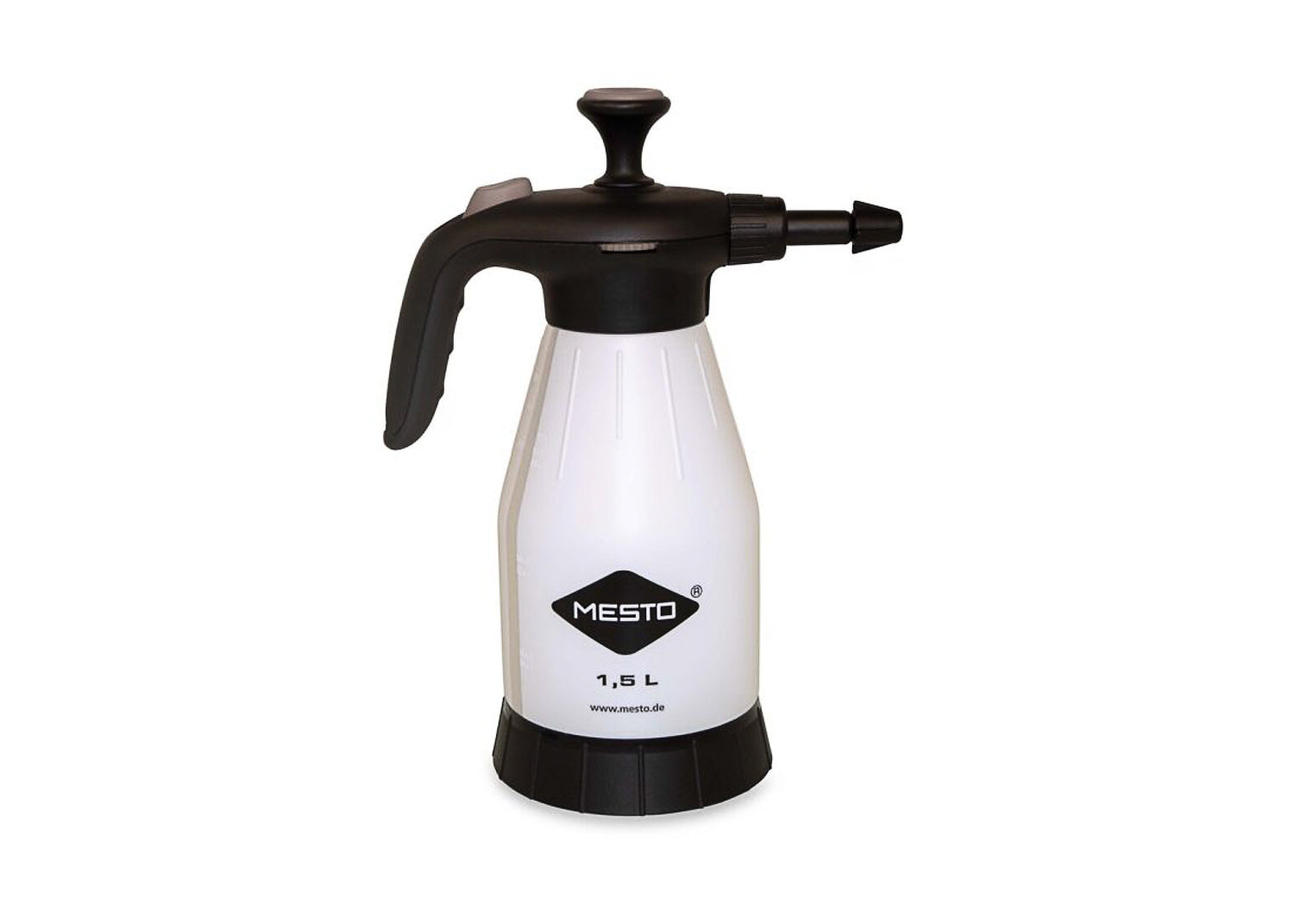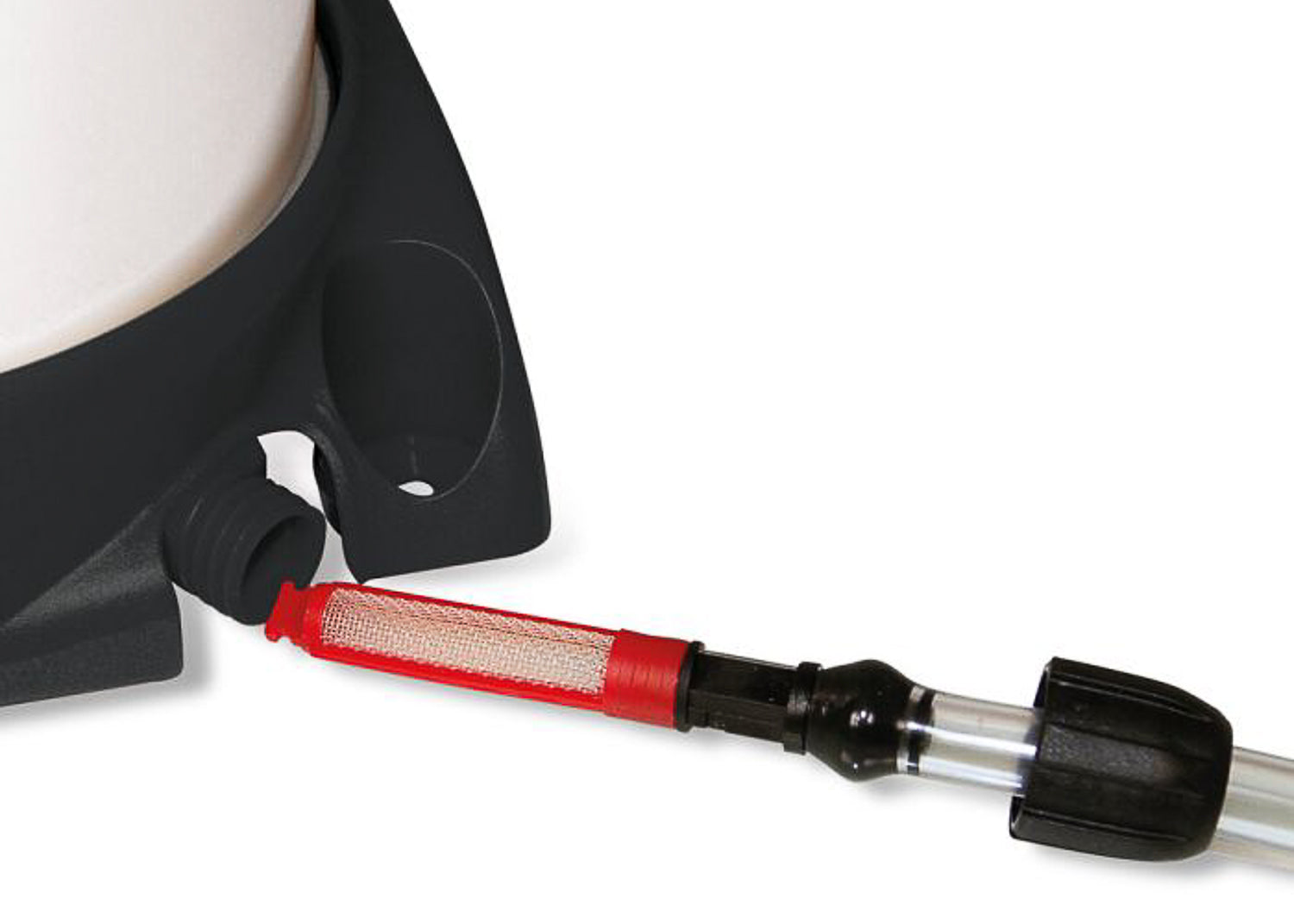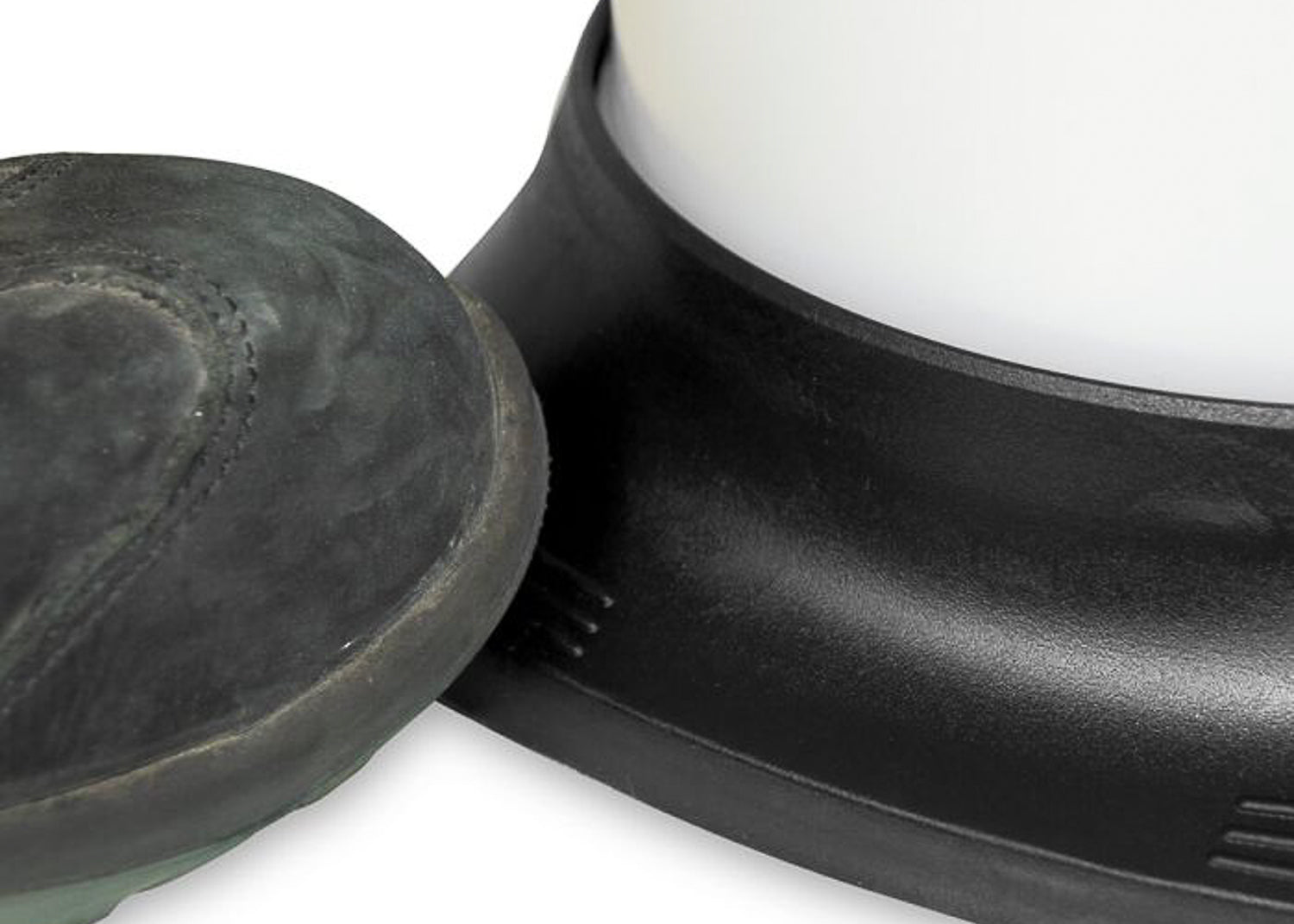Alkaline Sprayer Range
Alkaline Sprayer Range
SKU:0030
Professional quality compression sprayers with EPDM seals that give high resistance for many types of professional chemical solutions especially products within the cleaning and construction industries.
To help with your selection of an appropriate sprayer, we have provided a Resistance Guide that lists products that can or can't be used with this range of sprayers. If you can't see your active ingredient listed then please let us know and we can assist you in your selection.
Couldn't load pickup availability
Share
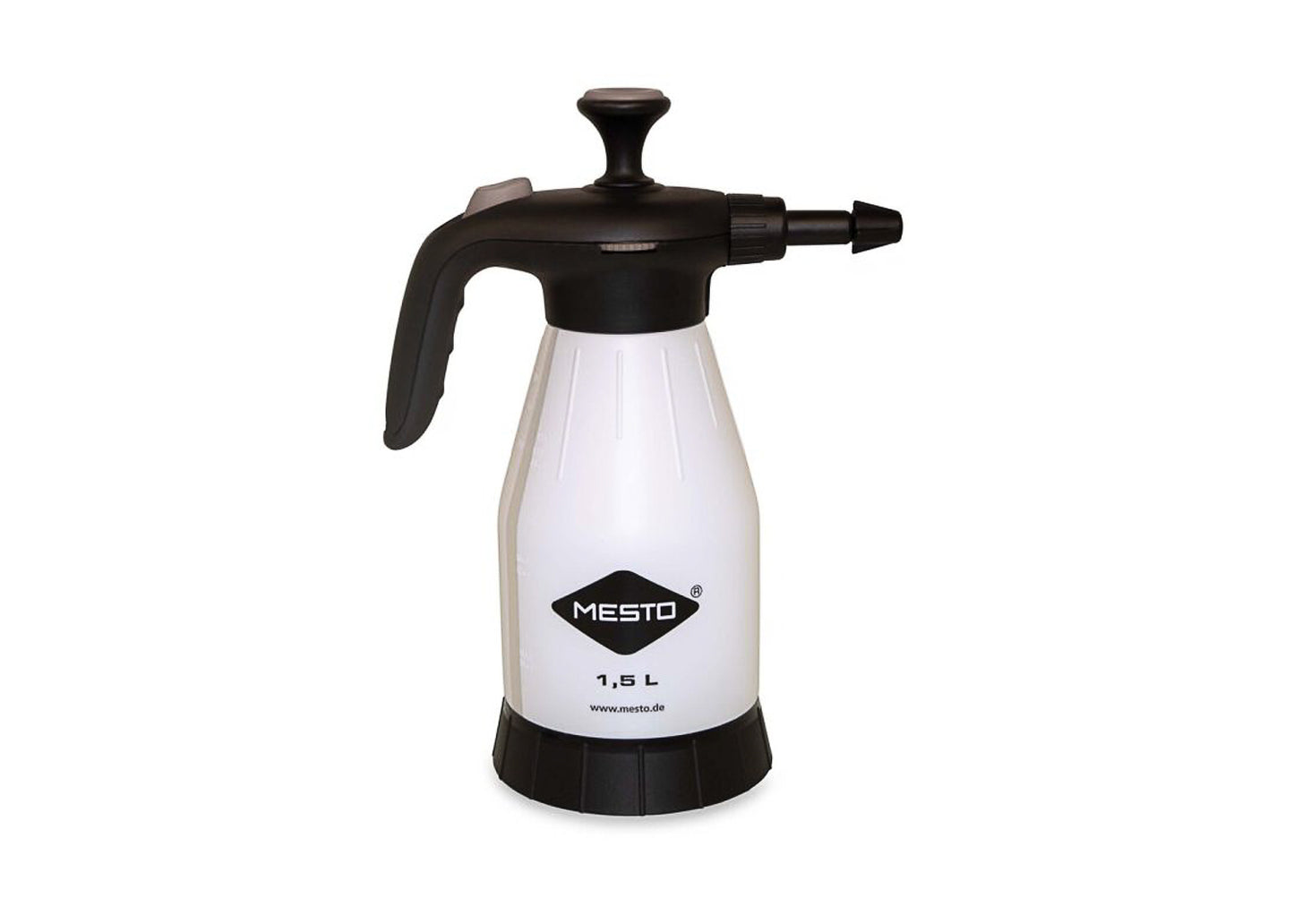
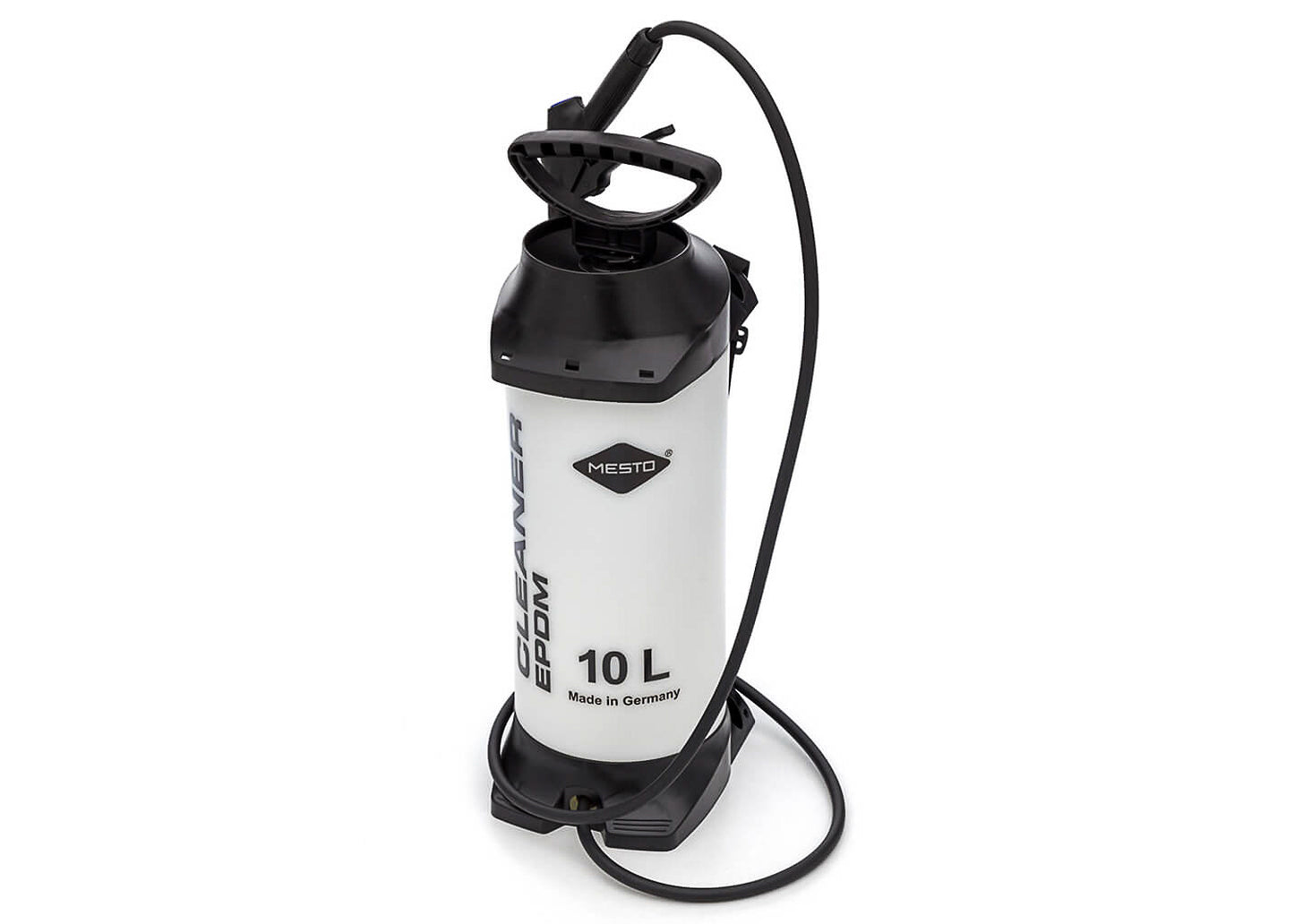
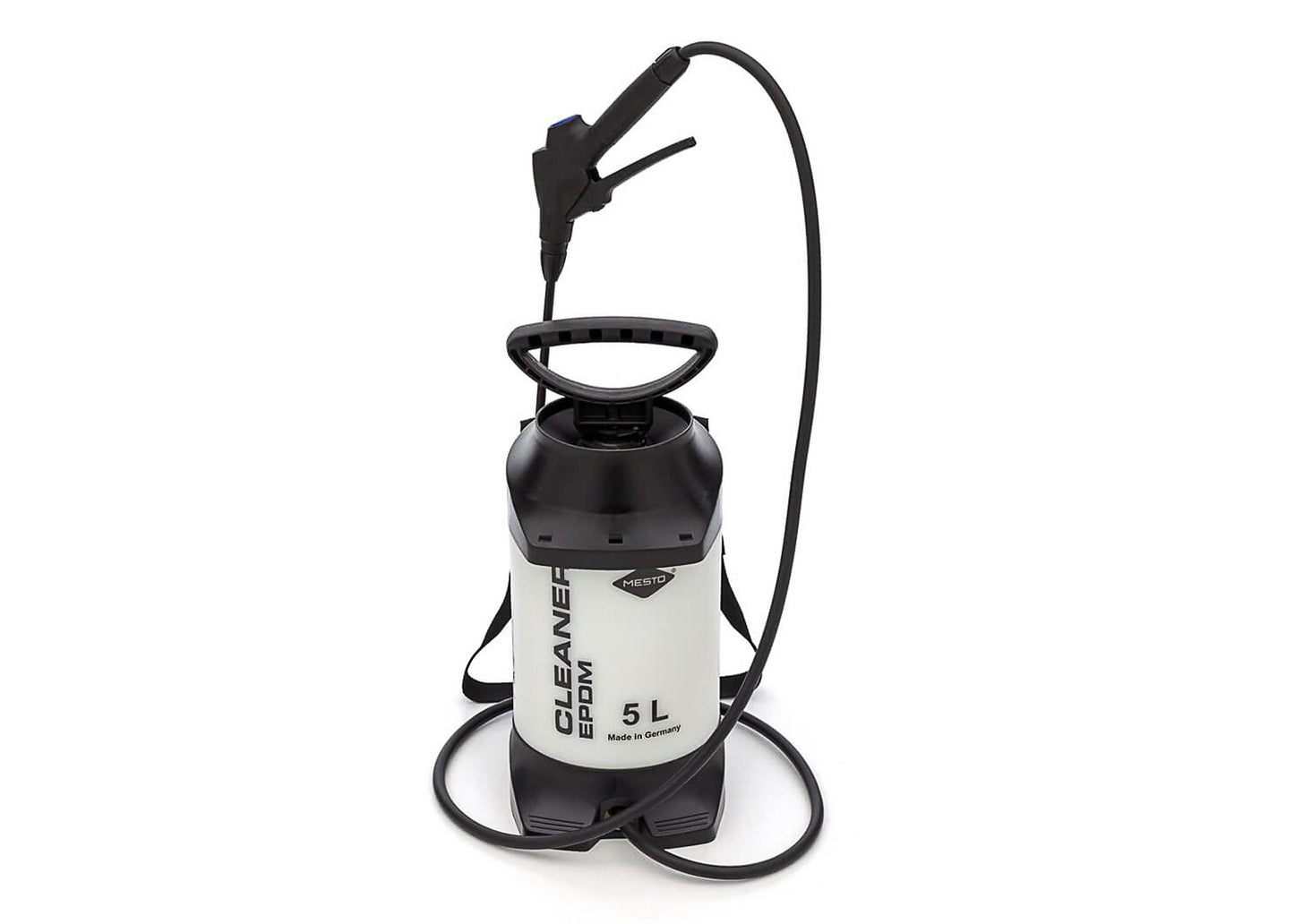
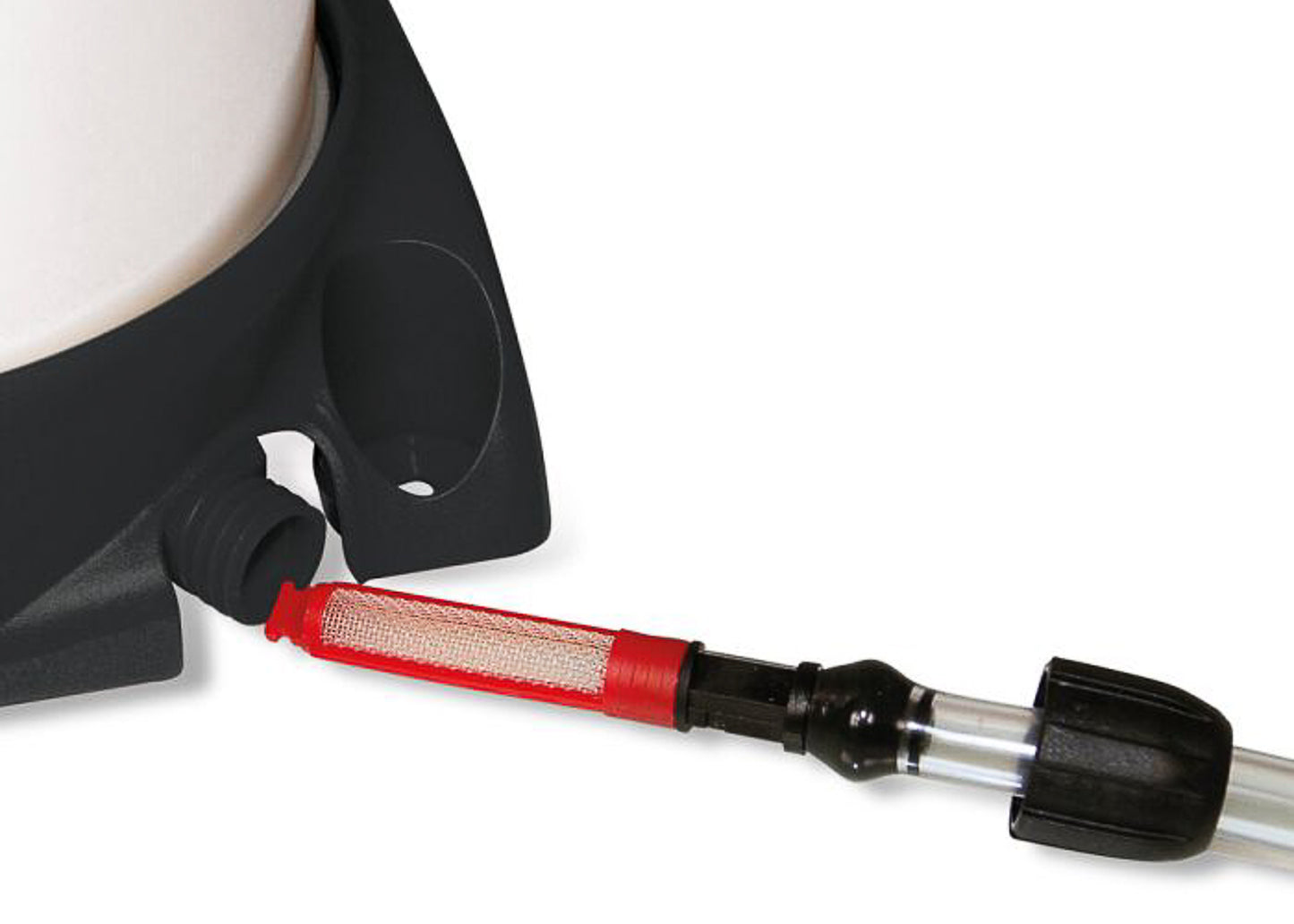
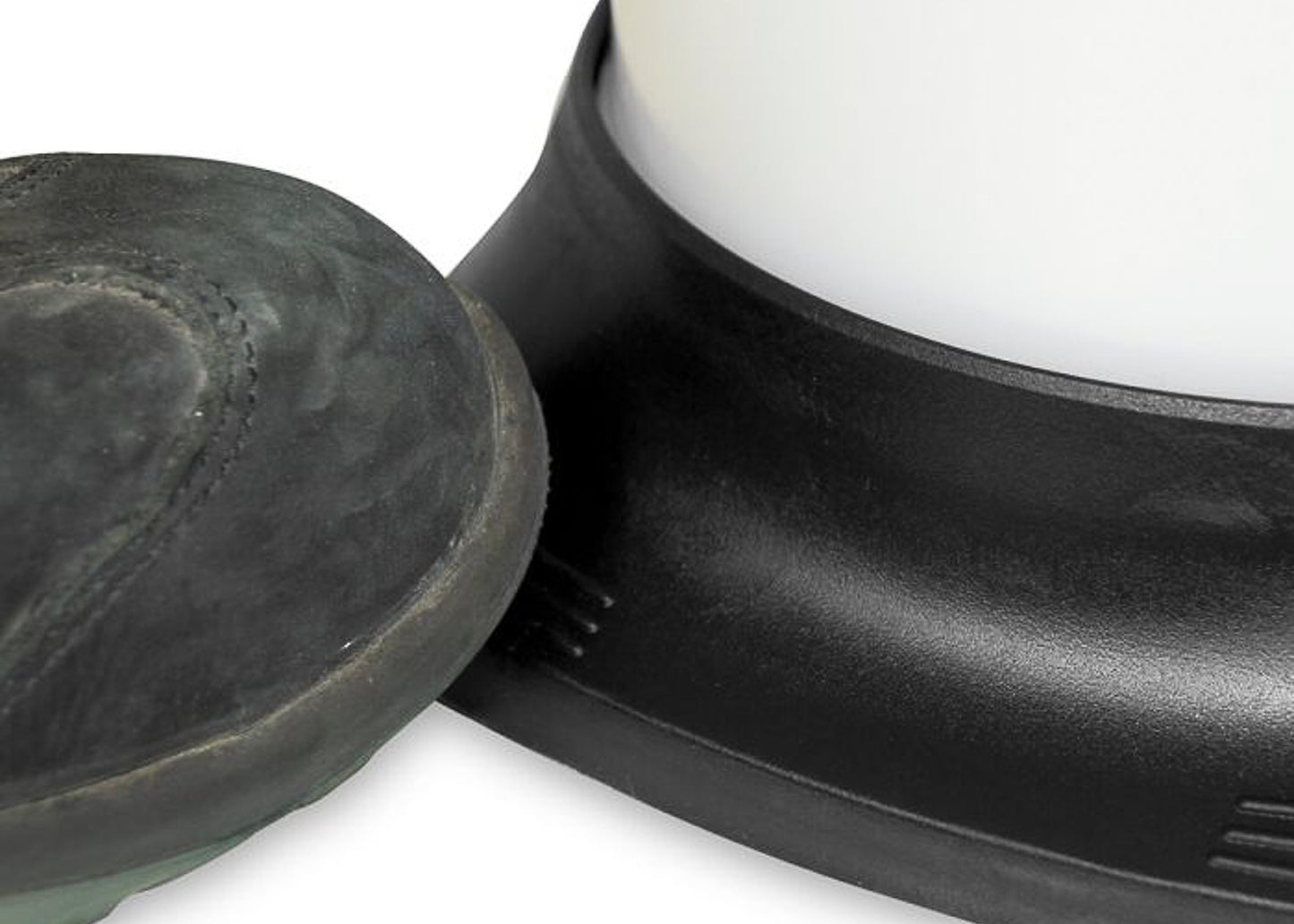
Product Description
These compression sprayers have 3 bar maximum pressure and are specifically designed for the application of a wide range of chemical products and are commonly used by cleaning professionals for an extensive range of applications. The specialist EPDM seals and internal parts are designed to withstand most chemical solutions with a pH range between 7-14 although we do recommend, for very aggressive chemicals, that you check the sprayer compatibility either on the Resistance Guide below or by calling us and we can check the compatibility for you.
The 10 and 5 litre sprayers are supplied with a 2-metre hose and the textured plastic lever handle has an integral filter and the 50cm spray wand is fitted with a flat jet nozzle that can be rotated around 360 degrees helping you to reach into most areas.
The spray wand can be extended by a further 45cm with our Extension Lance which can be found in the Accessories tab above. You can also adapt your sprayer to connect to an air compressor and have a constant supply of air without having to pressurise the tank yourself. There is also the option to mount this sprayer on a transport trolley which is designed for this range of sprayers. As with the extension lance, these items can be found in the Accessories tab.
Please note that the sprayers may differ slightly from the photos shown on this site. Cosmetic changes are sometimes made to the sprayers
during the manufacturing process and these may not be reflected in the images shown.
Product Specification
- Tank capacity - 12.5-litres
- Tank working capacity - 10-litres
- Tank Ullage - 2.5-litres
- Working pressure - 3 bar
- Unit weight - 2.9 kg
- Tank construction - plastic, single piece construction
- Carried by a shoulder strap, hand or by trolley
- pH range - 7-14*
- Nozzle supplied - PVDF flat jet (we offer a full range of nozzles and inserts)
- Lance - Plastic 500mm
- Hose - 2-metres
- Pump - plastic with coated steel piston rod
- Compressor compatible
- Seals
- EPDM that are resistant to solvents and is mainly resistant to base
products (alkaline). Generally, EPDM does not have a high resistance to
polycarbon based oils and to fuels.
- Tank capacity - 8-litres
- Tank working capacity - 5-litres
- Tank Ullage - 3-litres
- Working pressure - 3 bar
- Unit weight - 2.6 kg
- Tank construction - plastic, single piece construction
- Carried by a shoulder strap, hand or by trolley
- pH range - 7-14*
- Nozzle supplied - PVDF flat jet (we offer a full range of nozzles and inserts)
- Lance - Plastic 500mm
- Hose - 2-metres
- Pump - plastic with coated steel piston rod
- Compressor compatible
- Seals
- EPDM that are resistant to solvents and is mainly resistant to base
products (alkaline). Generally, EPDM does not have a high resistance to
polycarbon based oils and to fuels.
- Working capacity - 1.5 litres
- Working pressure - 3 bar
- Unit weight - 430g
- Tank - transparent plastic
- pH - 7-14
- Nozzle - adjustable plastic
- Pump - piston PP
- Seals EPDM
(Ethylen-Propylen-Dien-rubber which is a terpolymer rubber) It is
resistant to solvents and is mainly resistant to base products
(alkalines). Generally, EPDM does not have a high resistance to
polycarbon based oils and to fuels.
*We recommend a full compatibility test with aggressive chemical
solutions. If you are unsure about a product that you plan to use then
send us the safety data sheet (MSDS) for the product and we will check
compatibility and recommend an alternative sprayer if necessary.
FAQs
Why is the tank size different from the working capacity?
With compression sprayers you must have room, within the tank, to pressurise air which will then push the liquid out of the tank. This is why there is a difference between the tank size and the quoted maximum fill capacity. It is this difference that is called the tank ullage. The 10 litre sprayer has a 2.5 litre ullage meaning that the tank has a maximum capacity of 12.5 litres and the 5 litre sprayer has an 8 litre tank meaning that it has an ullage of 3 litres. The ullage is not quite so important with the hand sprayers as you simply re-pressurise whilst continuing to spray however the 1.5 litre sprayer has an ullage of 500ml. The more pressurised air that there is within the tank then the longer spray time between stopping and re-pressurising the tank. Be careful when buying sprayers as you need to know the maximum fill capacity as some manufacturers advertise the tank volume not the fill capacity as this makes their sprayers sound larger than they really are.
Should I use a plastic or metal sprayer?
The answer to this really comes down to how you plan to use the sprayer. Obviously the plastic sprayers cost less than the metal ones but they can only handle a maximum working pressure of 3bar compared to the 6bar for steel and stainless steel tanks. The metal tanks are generally more robust and can handle liquids with a higher temperature but they are heavier. The type of product that you are spraying should also be considered so do check the chemical compatibility.
Technical Information
Chemical Compatibility
Whilst not a definitive guide, this will give you an indication as to the chemical resistance of this
sprayer. Next to each item you will see either YES (resistant), CON (conditionally resistant) or NO (unsuitable). This is only a guide but if you can't see the chemical you plan to use or have any questions then please just contact us.
Acids
- Acetic Acid (maximum 10%): YES
- Silicic Acid: YES
- Peracetic Acid (maximum 6%): NO
- Phosphoric Acid (maximum 30%): YES
- Nitric Acid (maximum 10%): CON
- Hydrochloric Acid (maximum 10%): NO
- Aulphuric Acid (40%): NO
Alcohol
- Butanol: YES
- Ethanol: YES
- Methanol: YES
- Isobutanol: YES
- Isporopanol: YES
Aliphatic Hydrocarbons
- Decane: NO
- N-Heptane: NO
- N-Butane: NO
Aromatic Hydrocarbons
- Naphtha: NO
- Toluol (maximum 40%): NO
- Xylene: NO
- Heptaphene: NO
Oils
- Diesel: NO
- Kerosene: NO
- Mineral Oil: NO
- Petroleum Spirit: NO
- Concrete Release Agent: NO
Alkalines
- Acetone: YES
- Ammonia: YES
- Sodium Carbonate: YES
- Sodium Hydroxide (maximum 30%): YES
- Potassium Hydroxide: YES
- Sodium Hypochlorite (maximum 12.5%): NO

